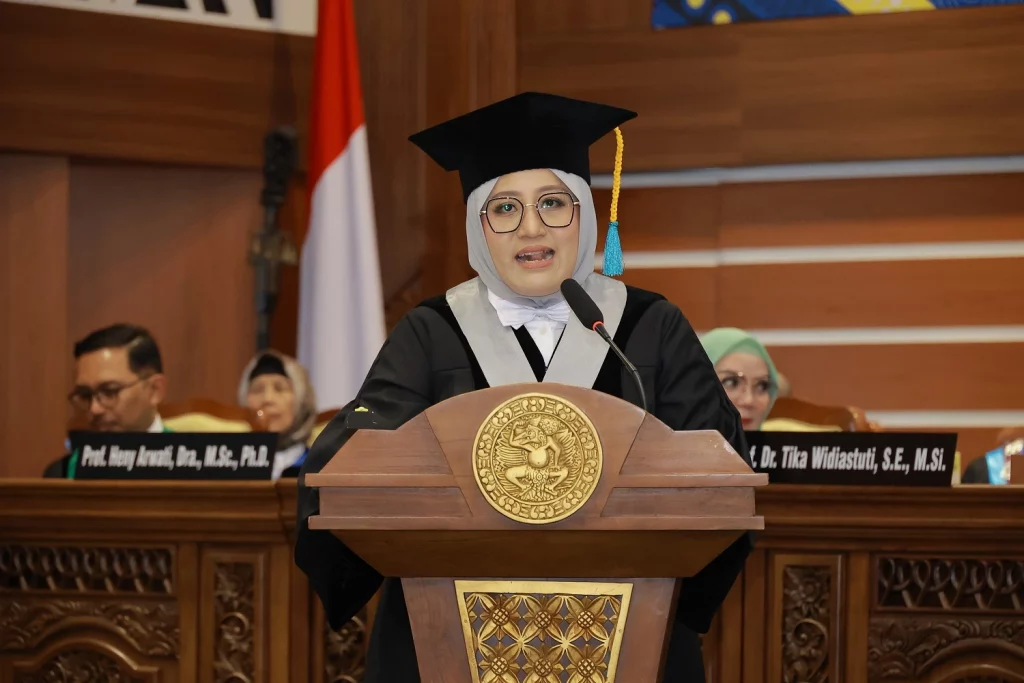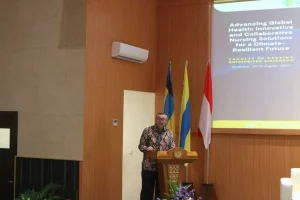UNAIR NEWS – Untuk menjaga stabilitas nilai tukar rupiah yang tertekan oleh dinamika global, Bank Indonesia (BI) kembali mengambil langkah intervensi di pasar valuta asing. Langkah ini menimbulkan diskusi luas terkait efektivitas intervensi, ketahanan cadangan devisa nasional, hingga pentingnya transparansi kebijakan moneter.
Intensifying global pressures
Professor Dr. Tika Widiastuti, SE, MSc, an economist at Universitas Airlangga’s Faculty of Economics and Business, explained that BI’s latest intervention is a direct response to increasing external pressure. “The strengthening of the U.S. dollar is fueled by expectations that the Federal Reserve will maintain elevated interest rates. On top of that, heightened geopolitical tensions are contributing to greater market uncertainty,” she said.
Under these conditions, capital tends to flow out of emerging markets, including Indonesia. As a result, Prof. Widiastuti believes BI’s intervention is necessary to help stabilize the exchange rate and reinforce investor confidence.

Evaluating BI’s strategy
When comparing market intervention to other monetary tools such as interest rate hikes, Prof. Widiastuti noted that each has its strengths depending on the context. Foreign exchange intervention is particularly effective in managing short-term market fluctuations, especially during sudden external shocks. Meanwhile, adjusting interest rates is more impactful over the long term, though it risks slowing economic growth.
“Both instruments should be applied carefully and in tandem when appropriate,” she emphasized.
Foreign reserves remain solid
Addressing public concerns about the adequacy of Indonesia’s foreign reserves, Prof. Widiastuti pointed out that as of March 2025, the reserves stood at around USD 140 billion—a level she considers solid.
“Nonetheless, BI must remain cautious and avoid overusing these reserves. Any drawdowns should be strategic to avoid undermining external stability,” she added.
Broader stabilization measures
As alternatives to direct market intervention, Prof. Widiastuti recommended that BI expand its policy toolkit by utilizing instruments such as the Domestic Non-Deliverable Forward (DNDF), entering into bilateral currency swap agreements, and offering incentives to attract more foreign currency from exports and remittances. She argued that such measures can complement existing efforts to support exchange rate stability. In conclusion, she stressed that navigating today’s global uncertainty demands economic policies that are adaptive, balanced, and sustainable.
Author: Rosali Elvira Nurdiansyarani
Editor : Khefti Al Mawalia









